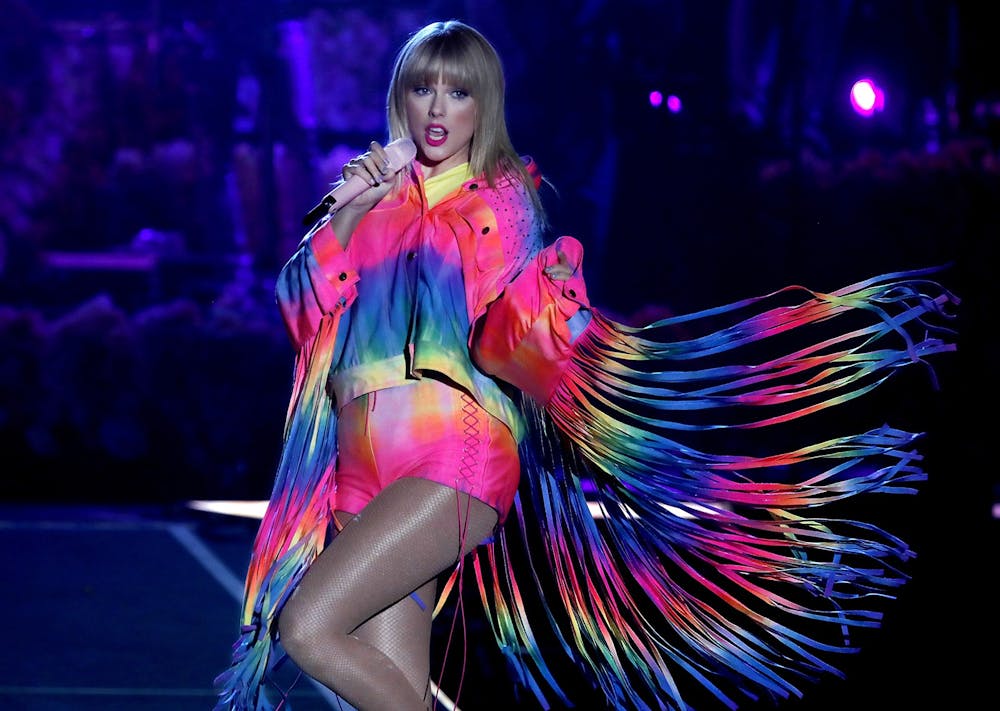Taylor Swift was in the news recently after an interview in which she expressed fears of being too political after growing up with the Dixie Chicks and seeing the backlash that came after member Natalie Maines criticized then-President George W. Bush.
“I saw how one comment ended such a powerful reign, and it terrified me,” Swift told Variety.
But Swift should not be afraid to be political in her work as a popular musician. Since the late 1930s, music has risen to be a political staple, whether that music came from citizens speaking out against government regimes or society’s standards or politicians and activists using songs to rally their supporters.
Music could influence, change and aid to today’s issues. Protest songs are melodies that contain movements. Without them, society lacks compassion and progress.
Woody Guthrie, one of the most essential folk artists, wrote “This Land Is Your Land” in 1940, after beginning his career in New York writing about social issues, such as the poverty brought on by the Great Depression and the Dust Bowl in the previous decade.
While the song carries an important message that the "land of the free" is made for everyone, no matter social status or skin color, one verse is a crucial turning point:
“In the shadow of the steeple I saw my people/By the relief office I seen my people/As they stood there hungry, I stood there asking/‘Is this land made for you and me?’”
Although this song became an unfortunately timeless anthem, current consumers desire music that is a reprieve from day-to-day tragedies or ongoing social issues, rather than constantly addressing them.
It's part of our biology to withdraw from traumatic events, such as school shootings or hate crimes. However, I believe it crucial to deny this instinct and instead address these issues. Society would not be the same if musicians such as Billie Holiday, Nina Simone, Bob Dylan, Joan Baez, James Brown or Neil Young, among many others, had not denied such instincts. Many within that generation of musicians ignited social and political uproar because during this time young people in America were attracted to music that deviated from their parents' political ideals.
Another song is an essential, enduring example of music affecting the masses socially and politically. Johnny Cash’s “What Is Truth” is another essential, enduring classic. Written during the peak of the Nixon administration, the song addresses ever-relevant problems.
“Yeah, the ones that you're calling wild/Are going to be the leaders in a little while/This old world's waking to a new born day/And I solemnly swear that it'll be their way/You better help the voice of youth find/What is truth?”
Meanwhile, today’s music continues to prattle on about young love, youth culture and living in the moment. Despite artists being more diverse and having better platforms than ever before, most music lacks pertinent, original substance. Although these are perennial topics, they do not progress society or social behavior — they simply endorse the status quo.
Luckily, there are outliers to this trend. Thanks to Childish Gambino’s “This Is America,” Hozier’s “Nina Cried Power,” Janelle Monae’s “Americans,” M.I.A’s “P.O.W.A” and numerous works by Kendrick Lamar, there is still hope that music can inform and ignite change.
Instead of recycling music from decades of political turmoil and social uproar, we need to look to the past for inspiration and create our ownprotest songs. Such anthems would be specific to current generations and issues and influence the changes we are in desperate need of.
While some believe that the time for music leading a revolution might be ending, I still believe there is hope. As long as there is one musical activist willing to impart their voice upon the masses, even if it's not Swift, and their fellow citizens are willing to listen, the revolution will live on.
Kailyn Hilycord (she/her) is a senior studying journalism, English and music. She plans to pursue graduate studies in journalism.






